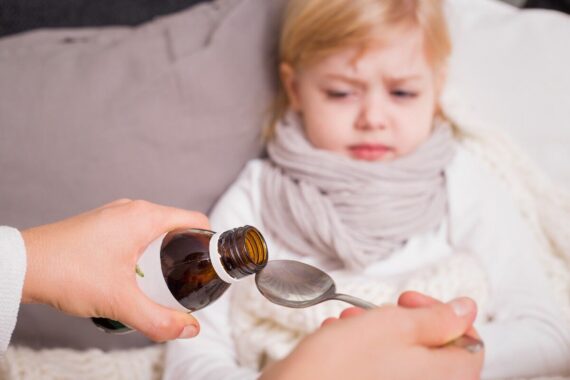NHS England has retired interim clinical guidance which lowered the threshold for prescribing antibiotics with potential strep A infections, following a recent reduction in infection rates.
The guidance, released on 9 December 2022, was aimed at GPs and other healthcare professionals when treating children up to the age of 18 with symptoms of a group A streptococcal (GAS) infection.
NHS England issued the advice as a result of the rapidly increasing rates of infections among children, as highlighted by the UK Health Security Agency (UKHSA) earlier in December.
But this interim guidance has now ended (effective 15 February) and GPs have been advised to return to the NICE Sore Throat (Acute) NG84 guideline for all age groups – a decision endorsed by the RCGP.
In early December, UKHSA wrote to GPs asking them to ‘have a low threshold to consider and empirically prescribe antibiotics to children presenting with features of GAS infection, including where secondary to viral respiratory illness’.
GPs across the UK reported seeing record levels of respiratory infections-related demand in December, causing some GP practices to stop routine appointments.
According to UKHSA’s most recent figures, there have been signs that rates of strep A are starting to decline, and are now in line with levels of circulation comparable with previous high reported seasons.
Due to this reduction, NHS England’s Clinical Advisory Group, professional bodies and UKHSA undertook a review of the interim clinical guidance which ‘assessed the overall clinical risk-benefit, including antimicrobial utilisation and potential for resistance and harms’.
But although they decoded to retire the guidance they still advise clinicians to ‘continue to be alert to the severe complications of GAS and maintain a high degree of clinical suspicion when assessing patients’.
There have been 41,012 notifications of scarlet fever since September, whereas the last peak season from 2017 to 2018 saw only 30,768 reports received across the entire season.
UKHSA found that increased rates of invasive group strep A infections is likely to be a result of increased rates of scarlet fever, and it is likely reduced exposure during the pandemic has led to higher levels of susceptibility among children.
NHS England, UKHSA and relevant bodies said they will continue to monitor the situation closely.


















READERS' COMMENTS [3]
Please note, only GPs are permitted to add comments to articles
Too late. Every tickly throat, every sneeze, every cough, means see your GP for antibiotics. More than 3 weeks and it must be cancer.
30 years of work p*ssed up against the wall in a few days by Public Health
That genie is out of the bottle
Good luck!
Well try to explain this to the patients.
Noctors gave me the antibiotics 2 weeks ago, now you refuse?!?!? Complaint!